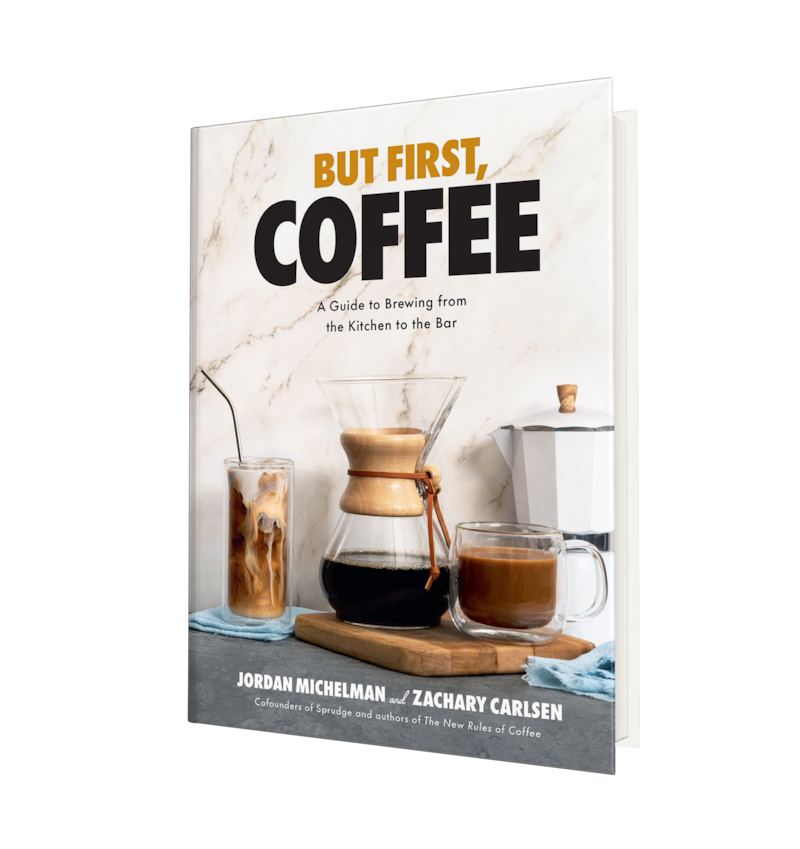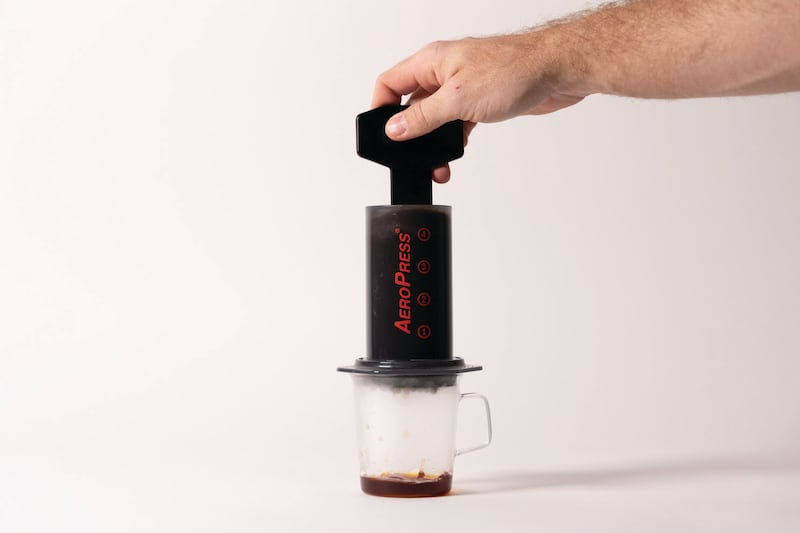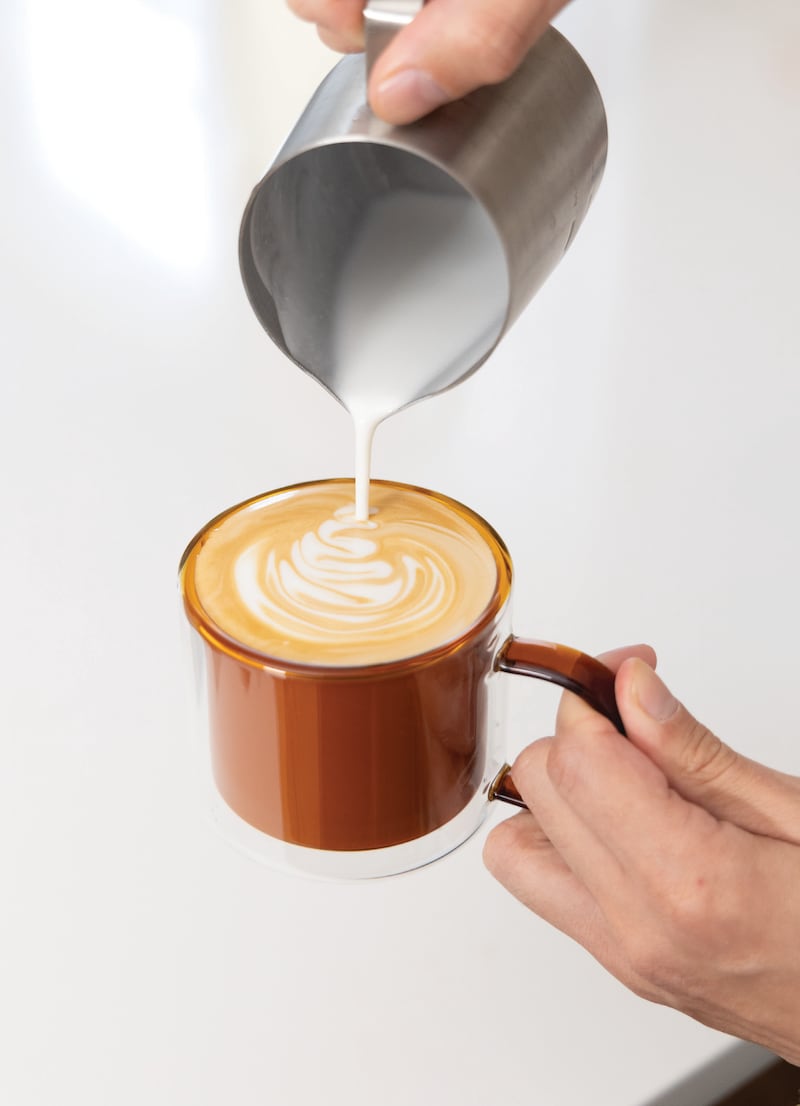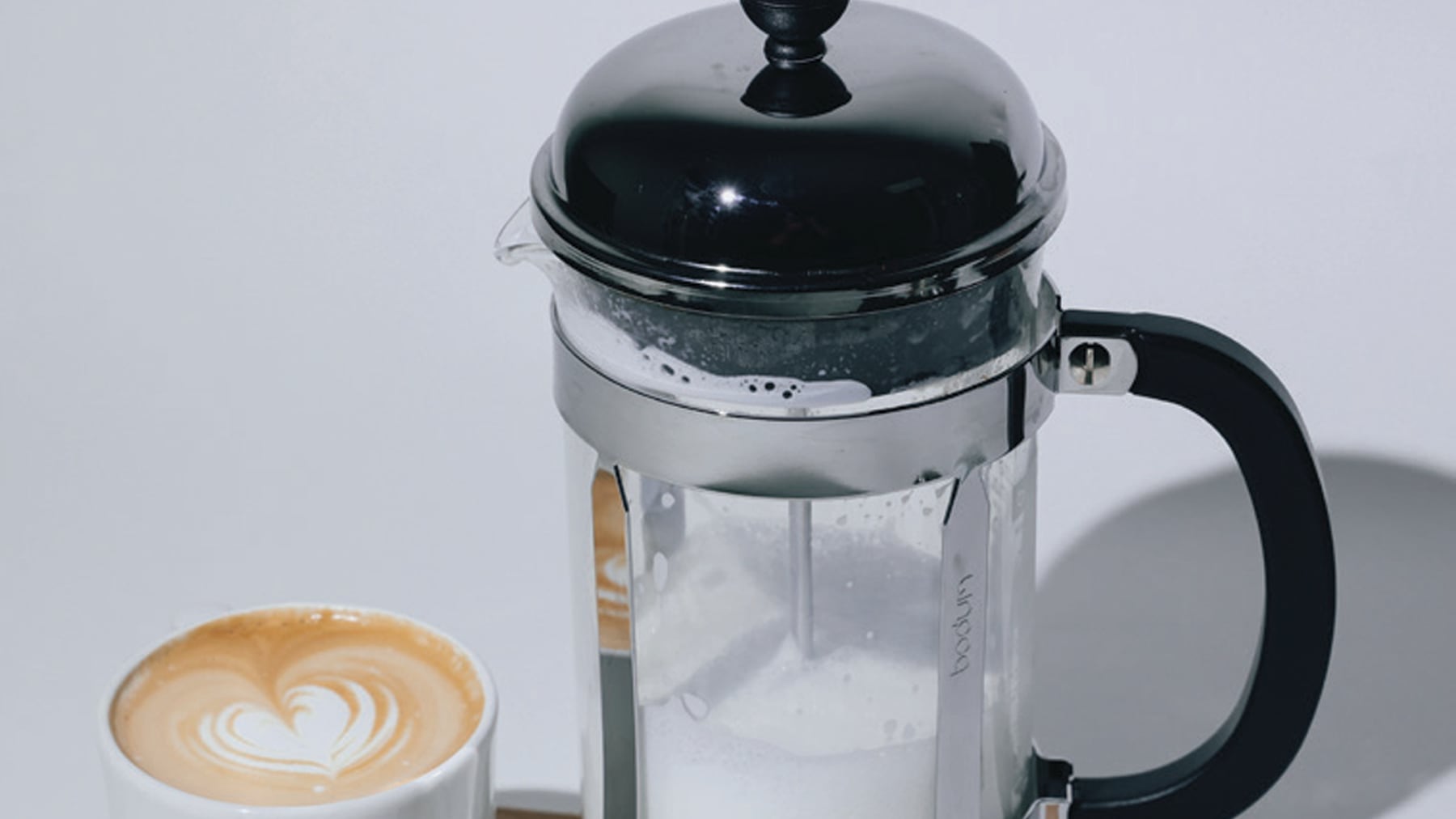The New Book, “But First, Coffee,” Documents Everything Coffee Enthusiasts Need to Know About Making the Perfect Cup at Home
It’s got a title that you might find on an Etsy throw pillow, but Jordan Michelman and Zachary Carlsen’s But First, Coffee: A Guide to Brewing from the Kitchen to the Bar (Union Square & Co., 192 pages, $20) is as serious as a Hario V60 pour-over set—in other words, a coffee book for everyone. (Well, everyone who likes coffee. The rest of you probably aren’t reading this.)
Michelman—a sometime Willamette Week contributor—and Carlsen are co-founders of Sprudge, which began life as a minimalist coffee blog (the name was a play on The Drudge Report) and is now part zine, part trade mag, and an epicurean guide to coffee all around the U.S. and the world. Sprudge originally came into being at a Stumptown Coffee, albeit a Stumptown in Seattle’s Capitol Hill neighborhood that no longer exists, but both the publication and its two editors have been Portland-based since 2013.
The duo previously published The New Rules of Coffee: A Modern Guide For Everyone, which was part of a larger series (including books on wine and cheese) and, as Michelman now notes, somewhat oddly did not include a single instruction on how to actually make a cup of coffee. Enter But First, Coffee, which is basically a cookbook, though one where the variations are more about techniques and tools than recipes, with sections devoted to espresso drinks, cocktails (including a coffee Negroni and a zero-proof Irish coffee), desserts (get ready for a “Hot Sprudge Sundae”) and even some uses for cascara, the outer fruit of the coffee cherry (what gets dried and roasted for your cuppa is the pit).

But first, coffee! Michelman spoke to WW about scale-phobia, the roots of the snobbish barista archetype, and some of his favorite java spots in town.
WW: Anybody who’s into coffee is probably already buying freshly roasted beans and grinding at home. What’s something you think people overlook that could make their coffee even better?
Jordan Michelman: The thing that I’m always kind of surprised by, even with people who are into coffee, is that there’s a mental block around using a scale. You use a scale if you’re going to measure out flour. You use a scale if you’re going to measure out sugar. And coffee is an ingredient. A little bit of precision goes a long way
I’m all about the scale, but then I might get lazy or careless with another step, like blooming the grounds, or not pouring the water fast enough.
Yeah, we talked about a lot of approaches for that in the book. I really like having an automatic home coffee maker because I have a busy morning—I have a 7-year-old, there’s lots going on—and I really like the repeatability and consistency that doesn’t depend on me not getting distracted during the pre-infusion or whatever. Coffee is this endless amount of variables, some of which you have absolutely zero control over, and then some you arguably have way too much control over. So I kind of like the automatic brewer for removing that part of it.

Over the years I’ve come to think that the stereotype of “snobbish Portland barista” was actually misplaced, and that most of them are nerds who only want to share their love of coffee. Do you think that’s true?
I agree with that assessment. You know, the snob barista thing, I have talked to some of the real architects [of coffee], and what they’ll tell you is that 15 years ago, people didn’t take coffee seriously. And if you were out there doing this thing where you were like, what I’m doing is so interesting and culinary and delicious—it should get taken as seriously as the craft cocktail bar or the beardy beer guy, but nobody takes it seriously—then you start to kind of wear that snobbishness like a suit of armor.
But as coffee has become more accepted and popular and competitive and diversified—and reflecting a broad range of experiences and cultural expressions and all the rest of it—I think some of those walls have quite naturally come down around it. And it has been a joy to get to document that happening. Now, places that have a little bit of that attitude almost feel kind of retro, which is really fun in a way. Third-wave nostalgia.
So were you guys kind of amusing yourselves with the title?
So, there’s a whole kind of long story with that. [The publisher] didn’t like what we wanted to call it. We didn’t like what they wanted to call it. And someone in the pipeline said, “What if they called it “But First, Coffee”? And we were like, “That’s a terrible name for a book! We hate that name! We couldn’t even call it that, because there’s got to already be 20 books called that.”
And then we looked and we were like, oh, there’s not 20 books called that. And y’know, we spent the last 14 years trying to convince people to know what the word “Sprudge” is. So it’s actually kind of nice to have a title for your book be like a meme.
This is obviously the “pick your favorite child” question, but at this particular moment, where would you send me for the best cup of coffee in Portland that I might not have heard of?
There’s this new place downtown called PDX Coffee Club. It’s on the top floor of a food hall that’s on 2nd Avenue, and I really like it. [The owners have] really nerded out doing this local multiroaster thing, which is fun, and they’re making some interesting signature drinks.
And what about among the usual suspects? A place we maybe take for granted that is still at the top of its game? Like classic Portland spots.
I guess it depends on how you define “classic.” One place I really like to go to is the market at Coquine. It’s not super-classic, because they opened that market right before the pandemic. But the coffee’s really delicious, and the thing that they do that I like so much is they use really, really good milk from a small dairy farm, Schoch Creamery. And I still like going to Stumptown. I still like going to Heart.
A place that’s actually kind of cool in Portland that’s maybe a little under the radar is Extracto, on Killingsworth. That’s got kind of a classic early-aughts-era Portland side to it. It kind of hasn’t changed, which is fun. The coffee’s nice there too.
Recipe: AeroPress Mock-iato With French Press Foam
The AeroPress may or may not make a true espresso—the conventional, and certainly not incorrect, wisdom is that you need more bars of pressure than the nifty little $30 to $50 plastic gizmo can provide to get a proper crema. But since the device’s introduction in 2005, many have attempted to get closer, both in terms of methods and with after-market metal filters. This recipe calls for the Fellow Prismo attachment, a long-standing variation with a built-in filter—AeroPress itself now makes a similar device: the AeroPress Flow Control Filter Cap, which you can use with both stainless steel or paper filters. It’s also different from many AeroPress recipes in that it calls for fully boiling water (instead of water at a temperature as low as 175 or 190 degrees). That makes things easier if you don’t have a programmable electric kettle.

Making a milk-based drink also means there’s no need to be quite so persnickety about crema. But then you still need a way to produce steamed milk and foam. Enter the “Sprudge French Press Frothy Milk Method,” which is featured in But First, Coffee. Just as an AeroPress can’t really compare to a $2,000 espresso machine, it’s not the same thing as a steaming wand. But it will do. The technique, which has been floating around the internet for years, is a longtime hobbyhorse of co-author Zachary Carlsen’s.
“That’s his baby. He’s been working on perfecting that for a lot of years,” co-author Jordan Michelman says. “Once you get good at it it’s fun, [and] a pretty good party trick.” Jason Cohen.
Double Espresso Shot
Based on a recipe from Fellow Products.
Tools
AeroPress Coffee Maker
Fellow Prismo AeroPress attachment
Electric or stovetop kettle (or saucepan)
Kitchen thermometer
Ingredients
20 grams coffee
50 grams boiling water (212 degrees)
Attach Prismo to AeroPress and set it on the scale. Add coffee. Tare the scale.
Slowly pour 50 grams of water into AeroPress. Start the timer as soon as you start pouring water. Make sure the water is boiling and be careful not to exceed 50 grams. It should take 10-20 seconds to add the water.
Stir the coffee for 20-30 seconds.
At 60 seconds, place the AeroPress on top of cup. Press hard, and hold consistent pressure. It should take 10-20 seconds to push the plunger through.
In the meantime, you should also be following steps 1 and 2 of…
Frothing Milk in a French Press
Tools
French Press
Milk pitcher or other vessel
Ingredients
Milk of your choice (Choose the amount based on your desired coffee drink.)
(Editor’s note: For this recipe you’ll need 1.5 ounces, but it’s best to froth a little more.)
Start with a clean French press and a milk pitcher. Warm the milk to 140-160 degrees on the stovetop or in the microwave. (Yes, a microwave, it’s fine.)
Transfer the warmed milk to the French press pot.
With the plunger attached, start pumping the milk through the mesh filter. Pump vigorously! Pump as though your life depends on it! The milk will quickly double in volume ad develop undeniably foamy characteristics.
Give the milk a good swirl in the French press to fold in foam that may have separated.
Once the milk has doubled in volume and become fully incorporated, transfer it to a milk pitcher if you’d like to attempt latte art, or simply pour the milk into your coffee drink.
Recipe adapted with permission from But First, Coffee: A Guide to Brewing from the Kitchen to the Bar © 2023 by Jordan Michelman and Zachary Carlsen. Published by Union Square & Co. Photos by Zachary Carlsen.


